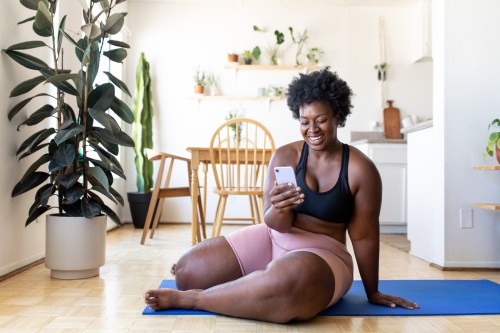Between protesting and demonstrating following the May, 2020 murder of George Floyd, working to counteract the recent uptick in anti-Asian violence, raising awareness about the ongoing racial and ethnic mortality disparities only getting wider amid the pandemic, and beyond, it’s clear that the fight for racial justice is neither easy nor near completion. Anti-racism work is often arduous and taxing, which is why in order to sustain the work, it’s important for activists to practice effective self care.
Experts in This Article
Attia Taylor is an artist and founder of Womanly.
McKensie Mack is the founder and CEO of McKensie Mack Group.
Co-founder of From Privilege to Progress
Monique Melton is an educator, author, podcast host of Shine Brighter Together, and painter.
In fact, self care is an integral component of all social justice and anti-racism work. “The idea that a human life is worthy of being cared for…runs diametrically opposed to all systems of oppression,” says anti-oppression consultant McKensie Mack, founder and CEO of the global social justice organization, MMG.
Another reason self care is so crucial to anti-racism work is because activists who are fighting for change are exposing themselves to trauma. “We, as oppressed people, have been carrying a lot of trauma for centuries, through generations,” says Attia Taylor, artist and founder of Womanly, a publication focused on making health information accessible to women and non-binary folks. Furthermore, many social justice activists who are Black, Indigenous, and people of color (BIPOC) haven’t been afforded space to relax, vent, and heal.
“By virtue of us caring for ourselves, that puts us in an even better position to also care for our community.” —anti-oppression consultant McKensie Mack
Rest is a form of resistance, and carving out the time for self care allows you to not only recharge yourself but also to do the work in the process. “By virtue of us caring for ourselves, that positions us in an even better position to also care for our community,” says Mack.
How, exactly, you practice self care in such a way that allows you to do the work while caring for yourself, though, is unique to you. Below, get details as to how four social justice activists practice self care.
Self care for activists is important—here are 4 practices social justice activists personally use.
1. Spiritual baths
One way that Mack practices self care is through spiritual baths, which are baths incorporated with meditation practices. “While you’re in the bathtub, focus on grounding yourself in your worthiness to be liberated, to experience rest, to experience the messiness that is liberation and movement work,” says Mack. They say that by taking spiritual baths, you can “ground yourself in your worthiness to be imperfect, to not always show up and be right and have the right thing to say.”
2. Taking in sunlight or eating foods that make you feel good
Doing the work often means having to revisit or read about one’s own trauma, which can be tiring. To take care of herself and naturally replenish her energy, Michelle Saahene, speaker, activist, and co-founder of From Privilege to Progress tries to soak in as much sunshine.
“I try to get sunlight—that makes me happy,” she says. She also recommends listening to your body’s need—whether that’s by hydrating or eating foods that make you feel good. “I try to drink a lot of water and eat a lot of fruit.”
3. Meditation
“I use meditation to calm my mind, dig deep into my self-consciousness, and visualize what I want for myself,” says Taylor. Meditating right before bed helps Taylor fall asleep and center herself, and she also incorporates meditation into her life about three to four times a week. Taylor’s anti-racism work includes building better avenues for Black and Brown people to exist and succeed, which requires her to breathe, reflect, and express herself, all factors for which meditation provides.
4. Establish a morning or evening wellness practice
“As a Black woman living in a society that is incredibly violent and hostile to my identity in every way possible, to choose to prioritize self care is not only a form of resistance, but it’s necessary for my ability to live and connect with my humanity,” says Monique Melton, educator, author, podcast host of Shine Brighter Together.
To center that connection, Melton establishes morning and evening wellness practices. This may look different for everyone, but for Melton, spending quality time with her husband is a part of her routine. “I incorporate it into my day by setting the intention and honoring the commitment—some days I get thrown off schedule, but I still make a point to incorporate components of my routine into my day, because it’s how I care for myself,” says Melton.
Ultimately, practicing resting—and practicing any form of self care—is an act of self-preservation that allows social justice activists continue doing the work. “Please know that by resting, you’re not betraying anybody—you’re not betraying our movement,” Mack says. “You’re not betraying our commitments to racial justice, but actually giving yourself permission to take care of you, doing liberation work,” Mack says.
Oh hi! You look like someone who loves free workouts, discounts for cult-fave wellness brands, and exclusive Well+Good content. Sign up for Well+, our online community of wellness insiders, and unlock your rewards instantly.
Sign Up for Our Daily Newsletter
Get all the latest in wellness, trends, food, fitness, beauty, and more delivered right to your inbox.
Got it, you've been added to our email list.











